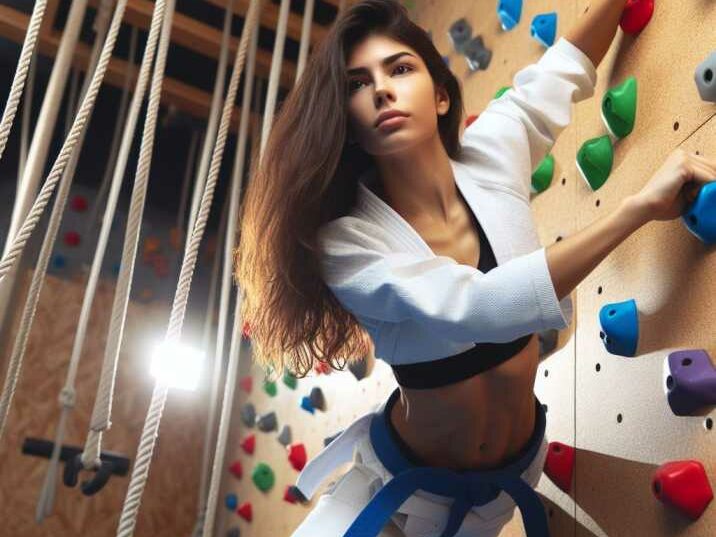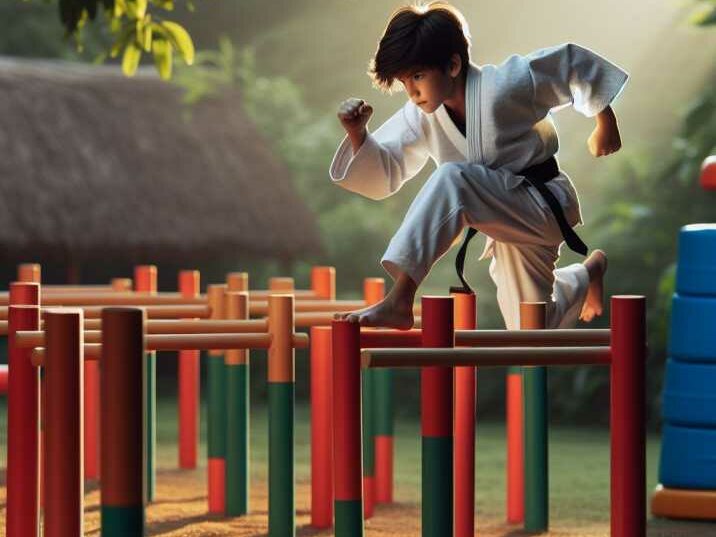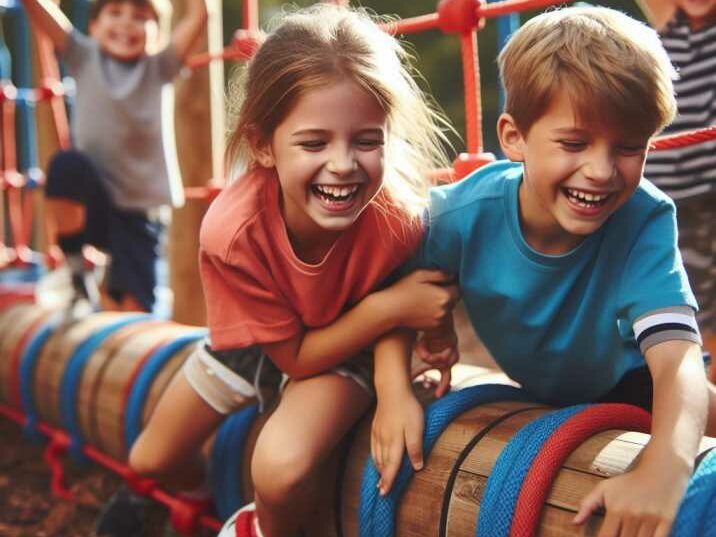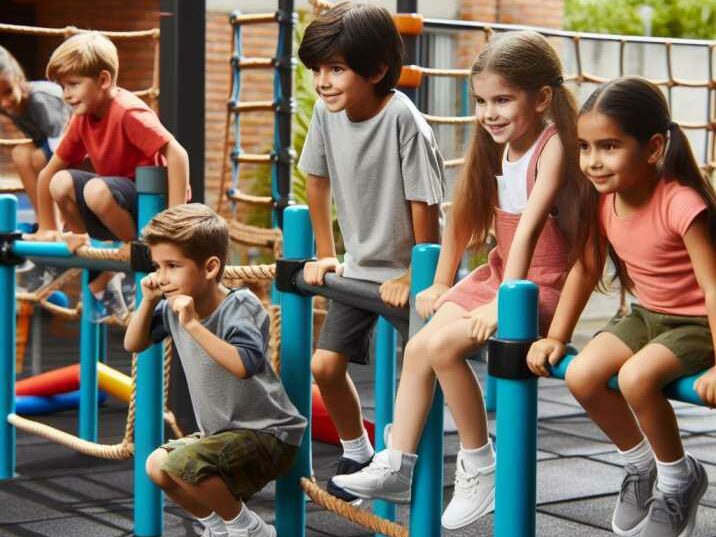Introduction
Table of Contents
Obstacle courses for kids martial arts
In the dynamic world of children’s martial arts, instructors are constantly seeking innovative ways to enrich the learning experience. One such groundbreaking approach gaining momentum is the incorporation of obstacle courses. Far beyond just a physical challenge, these courses bring a myriad of benefits to young martial artists, fostering holistic development. In this article, we delve into the transformative advantages of integrating obstacle courses for kids martial arts classes.

Benifits of Obstacle courses for kids martial arts
Physical Fitness Redefined
The cornerstone of any martial arts class is physical fitness, and obstacle courses take it to the next level. Navigating through hurdles, climbing walls, and overcoming challenges enhance strength, agility, and coordination. This not only contributes to the development of a robust physique but also instills discipline and perseverance.
Cognitive Agility in Action
Obstacle courses are not just about conquering physical barriers; they demand quick thinking and strategic decision-making. As children tackle various obstacles, they sharpen their cognitive abilities, improving focus, problem-solving skills, and the capacity to make split-second decisions – invaluable skills both in martial arts and daily life.

Building Confidence Brick by Brick
Each successfully conquered obstacle becomes a building block for a child’s self-confidence. The sense of accomplishment derived from overcoming challenges fosters a positive self-image. This newfound confidence extends beyond the obstacle course, positively impacting a child’s approach to academics, social interactions, and future challenges.
Teamwork and Camaraderie
Kids martial arts classes often emphasize the importance of teamwork. Obstacle courses provide an interactive platform for children to collaborate, communicate, and support each other. This not only strengthens the sense of camaraderie within the class but also imparts vital interpersonal skills that extend beyond the training mat.
Stress Relief through Play
Incorporating play into martial arts classes through obstacle courses offers a stress-relief outlet for young warriors. The playful nature of these challenges helps release pent-up energy, reduce stress levels, and create an enjoyable learning environment. This balanced approach ensures that children view martial arts as a source of joy and fulfillment.

Enhanced Concentration and Focus
The intricate nature of obstacle courses demands unwavering concentration. By navigating through a series of challenges, children learn to focus on the task at hand, blocking out distractions. This heightened concentration not only improves their performance in martial arts but also translates to increased attentiveness in other aspects of their lives.
Character Development at Its Core
Beyond physical prowess and mental acuity, obstacle courses contribute significantly to character development. Children learn the values of resilience, determination, and sportsmanship as they face and overcome obstacles. These qualities form the bedrock of a well-rounded individual, instilling principles that go beyond the realm of martial arts.
Conclusion
In conclusion, the incorporation of obstacle courses for kids martial arts classes transcends the physical realm, offering a holistic approach to development. From enhanced physical fitness and cognitive agility to the nurturing of confidence, teamwork, and character, these courses are a game-changer in the world of children’s martial arts. As instructors and parents embrace this innovative approach, they open doors to a new era of learning that goes beyond the traditional boundaries of martial arts education.

FAQs:
Q1: How frequently should obstacle courses be integrated into kids’ martial arts classes? Answer: It is recommended to incorporate obstacle courses once or twice a month to maintain novelty and enthusiasm.
Q2: Are obstacle courses suitable for all age groups in kids’ martial arts classes? Answer: Yes, obstacle courses can be adapted to suit different age groups, ensuring age-appropriate challenges.
Q3: Do obstacle courses pose any safety concerns for children in martial arts classes? Answer: Safety is a priority. Instructors should design courses with age-appropriate challenges and provide adequate supervision.
Q4: Can obstacle courses be customized to align with specific martial arts styles? Answer: Absolutely! Instructors can tailor obstacle courses to complement the techniques and principles of various martial arts styles.
Q5: How do obstacle courses contribute to improved discipline in kids’ martial arts classes? Answer: Overcoming obstacles requires discipline and focus, instilling these values as children navigate challenges.
Q6: Are there any specific types of obstacles recommended for kids’ martial arts classes? Answer: Obstacles should vary to target different physical and mental skills, including balance beams, climbing walls, and agility hurdles.
Q7: Can parents incorporate obstacle courses at home for their children practicing martial arts? Answer: Yes, simple obstacle courses at home can reinforce lessons learned in class and provide additional physical activity.
Q8: What role do obstacle courses play in developing a child’s problem-solving skills? Answer: Obstacle courses present challenges that require creative problem-solving, enhancing a child’s ability to think critically.
Q9: How can instructors ensure that obstacle courses are inclusive for children with varying skill levels? Answer: Instructors can modify courses, offer alternative routes, and provide additional support to ensure inclusivity for all participants.
Q10: Are there psychological benefits associated with overcoming obstacles in martial arts classes? Answer: Yes, overcoming obstacles boosts confidence, resilience, and fosters a positive mindset.
Q11: Can obstacle courses be integrated into virtual or online martial arts classes? Answer: Yes, instructors can design virtual obstacle courses using household items, promoting engagement in online classes.
Q12: Do obstacle courses contribute to the development of leadership skills in children? Answer: Absolutely, as children collaborate and support each other, they develop leadership skills essential for personal and group success.


